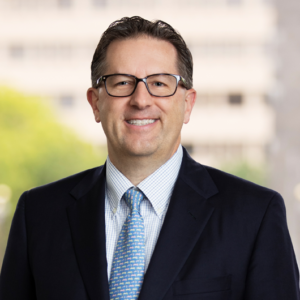The Department of Health and Human Services Office of Inspector General (“OIG”) recently issued Advisory Opinion 15-13,1 which provided a favorable opinion of a health system’s (“Requestor’s”) proposed arrangement to offer free transportation services to patients in a rural community (“Arrangement”). OIG stated that it would not impose sanctions against Requestor for violations of the Civil Monetary Penalties law (“CMP”) or the Anti-Kickback Statute (“AKS”) because the Arrangement promotes access to care and presents minimal risk of fraud and abuse of federal health care programs.
Background
Requestor is an integrated health system offering health care services in a rural community with limited access to public transportation. Requestor operates a 505-bed medical center (“Medical Center”), a 72-bed community hospital located 10 miles away from the Medical Center, a 55-bed community hospital located 16 miles away from the Medical Center, an ambulatory surgical center located 2 miles away from the Medical Center and a multi-specialty clinic employing more than 1,000 physicians.
Under the Arrangement, Requestor would offer a van shuttle service along two routes encompassing a number of the system facilities and a designated “drop-off and pick-up” stop centrally located in the town served by the Medical Center. The proposed transportation would be provided to patients of the system free of charge. One van route would run an 18-mile circuit and make stops at the Medical Center, one of the community hospitals, the ASC and the drop-off and pick-up location; while the second route would run a 10- mile circuit that connects the Medical Center and the other community hospital. Both vans would operate Monday through Thursday and would make several trips per day between the various facilities. The shuttle service would provide transportation for patients and those accompanying them to visits at any of the Requestor’s facilities along the two routes without regard to their health insurance status or ability to pay for medical services.
OIG Analysis
The AKS makes it a criminal offense to knowingly and willfully offer or receive remuneration in an effort to induce or reward referrals of items or services reimbursable by federal health care programs. Furthermore, the CMP provides for penalties against anyone who offers or transfers remuneration to a Medicare or Medicaid beneficiary that the provider knows or should know is likely to influence the beneficiary’s selection of a provider of any item or service that will be paid, in whole or in part, by Medicare or Medicaid.
Although OIG issued a proposed rule in 2014 that would establish a new AKS safe harbor intended to protect free and/or discounted local transportation services, this proposed rule has yet to be finalized. However, the Affordable Care Act (“ACA”) amended the CMP definition of “remuneration” to allow new exceptions for certain beneficiary inducements. Specifically, the ACA amendments exclude from the definition, any remuneration that promotes access to care and poses a low risk of harm to patients and federal health care programs. Interestingly, OIG’s analysis of the Arrangement did not go into detail of the Arrangement’s ability to satisfy this CMP exception to the definition of remuneration. OIG also chose not to discuss the Arrangement in light of its proposed transportation safe harbor. Instead, OIG analyzed the various risk factors of the Arrangement and determined that it presented a minimal risk of fraud and abuse based on the facts and circumstances.
When analyzing the arrangement, OIG identified the following facts that minimized the potential risk of the Arrangement:
- The shuttle service would be made broadly available to patients without regard to their diagnoses, conditions, treatments or type of insurance coverage, suggesting that the free transportation’s availability would not be determined in a manner related to past or anticipated volume or value of Medicare or Medicaid referrals.
- The shuttle service would use vans, rather than air, luxury or ambulance-level services, which are more valuable and thus pose a greater likelihood of creating an improper inducement.
- Van drivers would be salaried employees of the system who would not be paid on a per-patient or per-transport basis.
- Because the longest circuit covers a distance of just 18 miles, the shuttle service would only be offered locally. This reduces the likelihood of vans “leapfrogging” competitor facilities and recruiting beneficiaries from beyond Requestor’s primary service area.
- The shuttle service would not be marketed to the general public.
- Health care items or services would not be marketed to patients during transportation or at any other time by the drivers.
- Requestor would bear the full cost of the shuttle service without passing any costs on to Medicare, Medicaid, other payers or individual patients.
- Because public transportation options are limited in Requestor’s community, the shuttle service would provide patients of Requestor with alternative means of transportation to the system facilities, thereby facilitating access to health care services.
It is also of note that, in addition to the facts stated above, Requestor asserted that one of the community hospitals within the system leased space to three independent physicians. However, OIG concluded that it was unlikely that the Arrangement would influence patients to choose private physicians leasing space on the campus of a community hospital along a van route over other practitioners. As a result, it was determined to be unlikely that the transportation service would result in subsidies to the physicians.
Practical Takeaways
Health care providers and entities that currently offer transportation services, or those that desire to offer such services in the future, should carefully consider any services provided to Medicare or Medicaid beneficiaries in order to ensure that these incentives do not violate the AKS or CMP. Until OIG finalizes the proposed transportation services safe harbor, providers considering the provision of transportation services for Medicare or Medicaid beneficiaries for free or less than fair market value should consider the following:
- Services should only be offered locally and should be made broadly available to patients within the provider’s primary service area without regard to diagnoses, conditions, treatments or type of insurance coverage;
- Services should not be marketed or advertised to the general public and health care items or services should not be marketed by drivers or during the course of transportation;
- Services should utilize means of transportation least likely to create an improper inducement, such as vans and shuttle buses, rather than air, luxury or ambulance-level services;
- Drivers employed or contracted to a provide transportation services should not be compensated on a per-person or per-patient-transported basis;
- Providers should bear the full cost of the shuttle service without passing any costs on to Medicare, Medicaid, other payers or individual patients; and
- Services should facilitate access to health care services in areas that may lack accessible public transportation.
Note that OIG’s proposed transportation services safe harbor, if finalized, could give providers broader latitude in structuring these types of arrangements. A more detailed summary of the proposed safe harbor can be found here.
If you have any questions or would like additional information about this topic, please contact:
- Gregg M. Wallander at (317) 977-1431 or gwally@wp.hallrender.com;
- Erin M. Drummy at (317) 977-1470 or edrummy@wp.hallrender.com;
- Alyssa C. James at (317) 429-3640 or ajames@wp.hallrender.com; or
- Your regular Hall Render attorney.
Special thanks to Mayo Alao, Law Clerk, for his assistance with the preparation of this Health Law News article.
Please visit the Hall Render Blog at http://blogs.hallrender.com/ or click here to sign up to receive Hall Render alerts on topics related to health care law.
1 For a copy of Advisory Opinion 15-13, click here.




